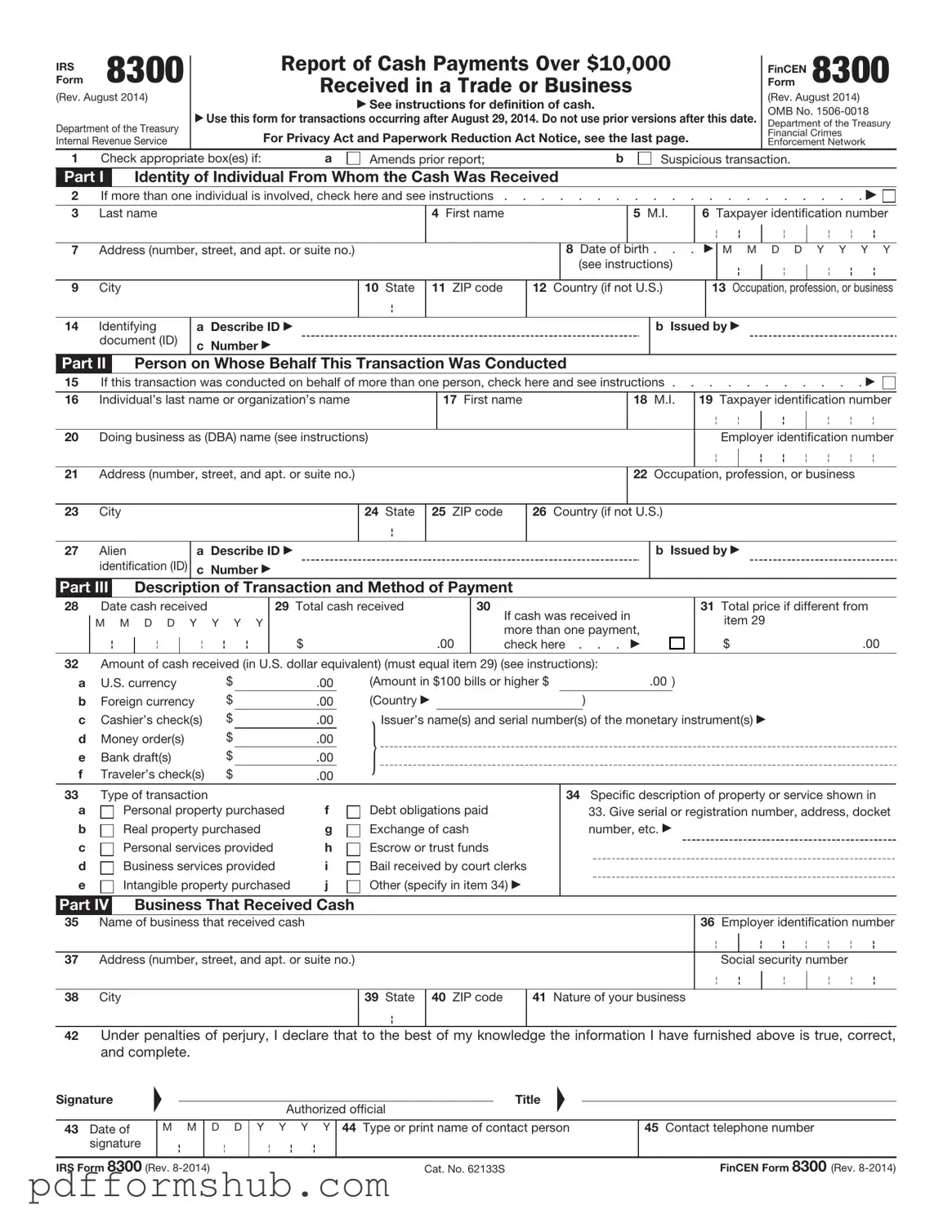Fill in Your IRS 8300 Form
The IRS Form 8300 is a document that businesses must file when they receive more than $10,000 in cash from a single transaction or related transactions. This form helps the IRS track large cash transactions to prevent money laundering and other illegal activities. Understanding how to accurately complete this form is essential for compliance, so take the next step and fill it out by clicking the button below.
Customize Form

Fill in Your IRS 8300 Form
Customize Form

Customize Form
or
Free PDF Form
Short deadline? Complete this form now
Complete IRS 8300 online without printing hassles.